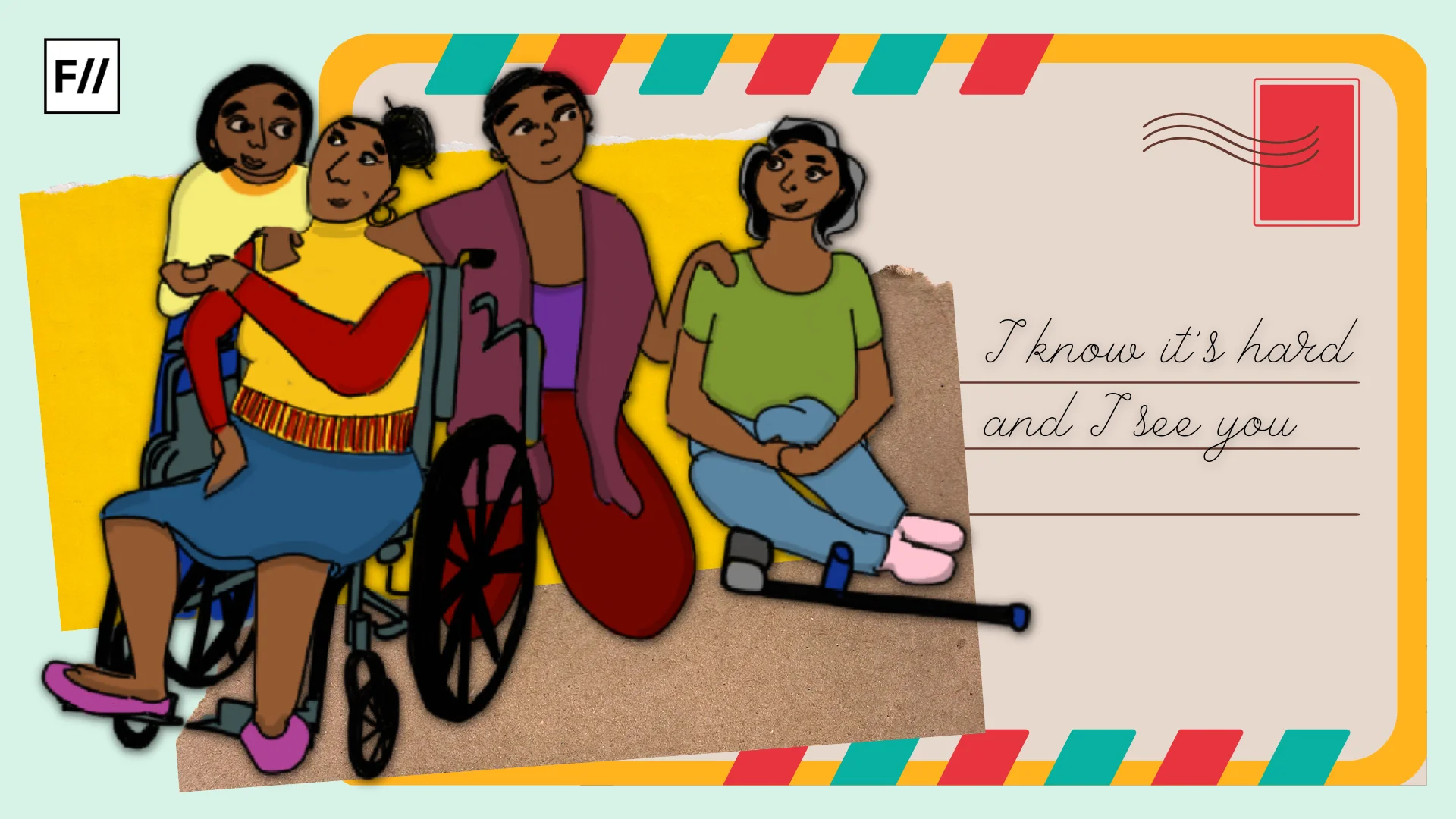A couple of Fridays ago, my sister-in-law sent me an email with the poster of a new play called ‘Tara’, which was to be staged at the India Habitat Centre in the first week of September. The blurb on the poster read: “Divya Arora: India’s first wheelchair-user actor with cerebral palsy, will essay the role of the physically challenged ‘Tara’.” For one, I hadn’t seen a play in a long time, and second, the direction of the play by two women, Sohaila Kapur and Divya Arora herself, portraying stories of “disability, betrayal and love”, piqued my interest, and I decided to go. And I am so glad I did.

“‘Tara’ is the story of conjoined twins who are surgically separated in a manner intended to favour the boy,” the blurb goes on to read. The play is based on Mahesh Dattani’s ‘Tara’ written in 1990, and is a commentary on patriarchal gender discrimination, as well as the narrative around disability that was resonant in society in 90s India. What was exceptional about the play wasn’t just the titular role played by Arora, but also the sensitivity with which the play was written and directed.
What was exceptional about the play wasn’t just the titular role played by Arora, but also the sensitivity with which the play was written and directed.
The premise of the play is that conjoined twins Tara and Chandan, now sixteen years old, are coming to terms with Tara’s ongoing spate of surgeries – she is a wheelchair-user, and has failing kidneys, while Chandan, the viewers notice, only has a limp, but seems fine otherwise. Their father and mother hope to provide a semblance of normalcy in the lives of the twins: their mother almost bribes their neighbour’s daughter, Rupa to become friends with Tara. In exchange, Rupa was promised a television to watch all kinds of movies at their house, and have coffee – activities which are out of bounds for her in her own house. Their father tries to urge Chandan to come to work with him, so that he can learn the tricks of the family trade, but Chandan is adamant about taking Tara along with him, which the father doesn’t think is wise.
There are parallel time periods shown throughout the play: the present is Chandan writing a book about their life in Bombay several years after Tara’s death; there is the parallel time period of the doctor, who delivered Tara and Chandan, and performed the operation to separate them, explaining to the audience the intricacies of being conjoined twins, and how he handled this specific case; and, finally there is the past, which has sixteen year old Tara, Chandan and Rupa, and their parents, all trying to make sense of disability and love in a gender unjust, and disability insensitive society.
However, these are not the only issues Dattani’s play addresses. The more subtle issues that he writes about include the idea of hysteria attributed to women. In a sub plot in the play, Tara and Chandan’s mother is sent to a medical facility because she showed the then culturally accepted signs of hysteria – signs which were deduced from the fact that she was worried about her daughter, and was guilty of the fact that at the time of birth of her twins, she had decided that the doctor would give both functioning legs to Chandan, and Tara would be a wheelchair-user.
She decided that her daughter would not require the functionality of legs as much as her son would. However, she changed her mind soon after, and there was a correctional surgery performed on the twins, after which both had one functional leg each. But the guilt that accompanied this decision drove her to dote excessively on Tara, and also opt to give Tara one of her kidneys for her upcoming kidney surgery. The father, however, does not want his wife to donate her kidney – he does not want her to get any respite from the guilt that she feels every day, in a more pronounced manner than him, because she is home, looking after the children and he is at work, playing the breadwinner.
The strife between the parents is indicative of the unequal playing ground for gender, wherein since the economic reins are in the father’s hands, he is the major decision maker of everything around the house – who gets to go to work with him, whether or not his wife requires medical assistance, and whether or not his wife can be Tara’s kidney donor. In a chilling subtext of the play, he also seems to be the proprietor of her emotions – he deciphers her emotions as “abnormal”, and sends her to an asylum.
Also read: Performed Conversations: Dynamic Form Of Alternative Theatre In Assam
Additionally, the role of Rupa also doubled as the role of the outsider, the external gaze on this family. While trying to be friends with the twins, she would go and blurt out everything she saw and heard at the house to her other friend, Kavita – a character without a face, emblematic of the society at large.
Arora essayed the role of Tara with sensitivity, and to perfection. Not only is she an actor and director in the play, she is also a poet, musician, lyricist, painter, acitivist, model and linguist – all feathers in her ever growing hat. In an interview to The Times of India in 2009, Arora spoke about her journey to the stage. Being diagnosed with cerebral palsy at the age of two, she couldn’t speak till her teens, and underwent painful therapy for two years. From initially just mumbling a few words, she now speaks six languages. She has directed more than twenty five plays since her first during her undergraduate years at Lady Sriram College, Delhi. She also helped Hrithik Roshan prepare for his role as a paraplegic in Guzaarish (2010) and has acted in Anurag Kashyap’s Shaitaan (2011).
Being diagnosed with cerebral palsy at the age of two, she couldn’t speak till her teens, and underwent painful therapy for two years. From initially just mumbling a few words, she now speaks six languages.
However, she speaks about courage on stage, and the fact that the industry should not ignore talent: “no art form should discriminate on the basis of physical ability,” she said in an interview to The Indian Express, earlier this month. She talks about taking centre stage in most of her plays, saying that “it does not matter that I am not fully mobile. I make my mind jump around.” Her passion for the stage is visible in her portrayal of Tara, majorly also because she understands the lack of awareness about disability in the larger social setup. Ruminating on her location as a theatre actor with cerebral palsy, who might lack the energy that is said to be required for such actors, Arora says that despite changing terms for people with disabilities from viklaang to divyaang, the ground realities for them do not change. She wants to travel the world with ‘Tara’ so that awareness can be created and conversations can be initiated.
Watching the play was not only an exercise for my eyes (I forgot to carry my glasses), but also for the contours of my mind. I have watched a fair number of plays in my life, mostly local theatre groups in Calcutta, and while those plays were novel in their own ways, opening up closed and/or undetected boxes in the mind, in retrospect, they also seemed conformed to certain ideas of “normalcy” – either in their plots, or in the actors who were chosen to play characters in these plots.
Also read: Here Is A List Of 5 Feminist Theatre Acts That You Can Watch Or…
While I was conscience-stricken that I hadn’t heard about the work of Arora before this (she’s already directed twenty five plays), I feel very lucky to have gotten a chance to see her work on stage. The pushing of boundaries of any industry to be more inclusive of more players, more characters, more subjectivities, is what would best define the progressive nature of that industry. It is not only inspiring, but also extremely encouraging to see the colours outside the normalized lines of creativity.
Featured Image Source: YouTube
About the author(s)
Himalika is slowly beginning to get the hang of being an adult, despite being a bad cook. She will take most things with a sense of humour and is constantly striving to infuse feminist practices in her research.




